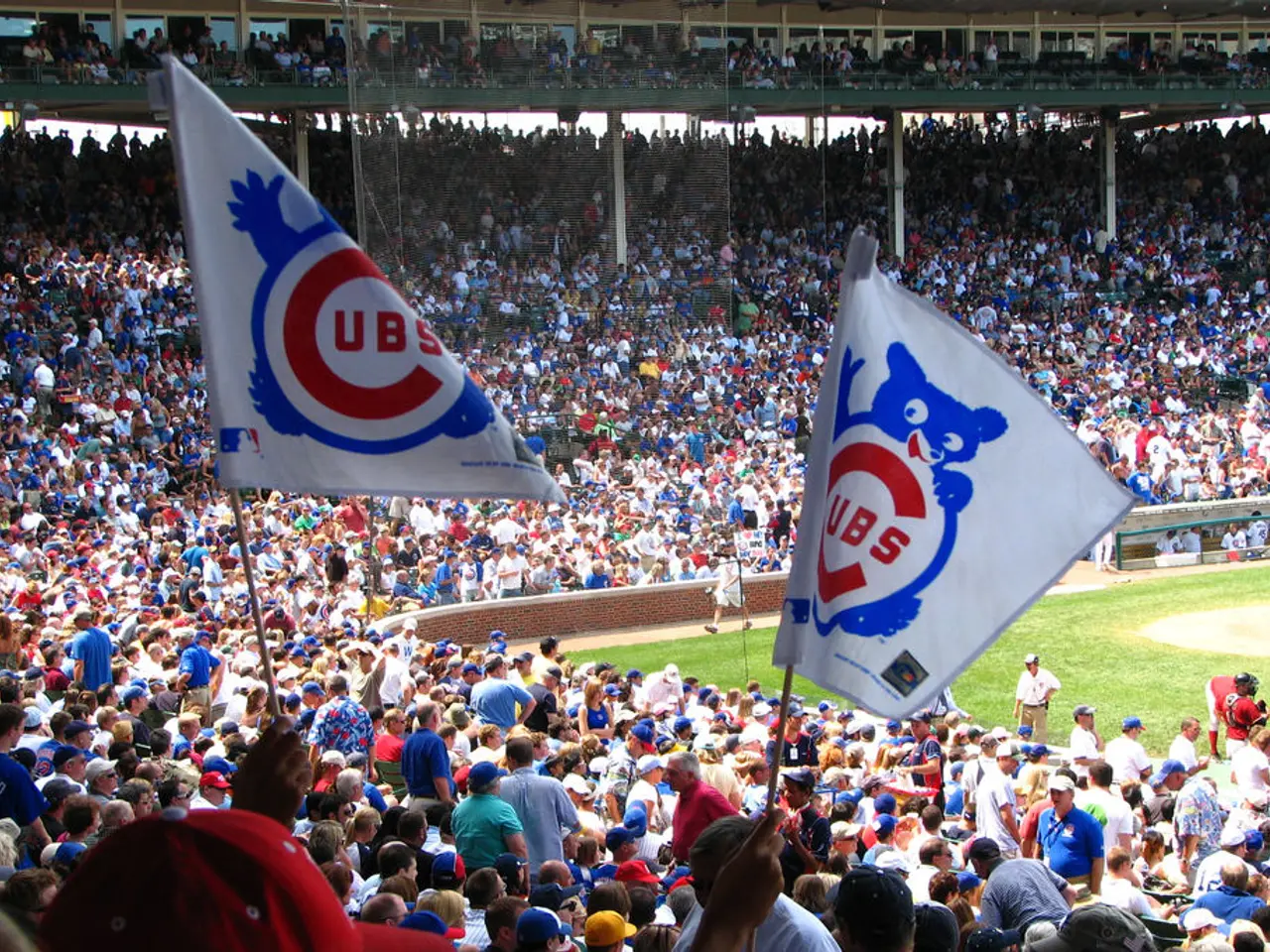Ukrainian flags affirmed, Palestinian flags denied?
In the world of football, politics often takes a backseat as the focus remains on the beautiful game. However, recent events have shed light on the complex relationship between sports and politics, particularly regarding the display of political symbols in stadiums.
Athletic Club, based in San Mamés, made headlines when it allowed the display of a massive Palestinian insignia in the stands during a match. This act, while significant, has not been met with a clear response from La Liga, which has yet to give any indications about the use of Palestinian flags in the next round of games.
The European football governing body, UEFA, has taken a more proactive stance on the issue. In 2022, UEFA banned Russian teams from all international competitions as a retaliatory measure for the invasion of Ukraine. To show solidarity, UEFA included the word "peace" in both English and Ukrainian on the official match ball, on the stadium screen, and on the field banner during the 2022 Champions League final.
However, not all political symbols are tolerated. UEFA's Disciplinary Regulations prohibit any message unrelated to sport, and flags must not obstruct views or create security risks. In 2023, UEFA fined Glasgow's Celtic 15,200 pounds for the display of Palestinian flags, considering them as provocative and offensive messages.
La Liga's Regulations are similar, with provisions that prevent persons from entering or staying in sports facilities with banners, flags, symbols, or other signs with messages that incite violence or terrorism, or threaten, insult, or ridicule on the grounds of racial or ethnic origin, religion or convictions, disability, age, sex, or sexual orientation.
Each sports club decides on access to its facilities on match days, and it is the security services of each club that admit spectators and decide which materials they can bring in. The match organizer, along with the match police commander and the security officer, must prevent provocative actions.
Clubs are responsible for inappropriate behaviour by their fans, and may face sanctions even without negligence. State security forces and bodies write reports on incidents or events within the stadium and include what they consider sanctionable after a match.
In Spain, stadiums like the Metropolitano, home to Atlético Madrid, projected the colours of the Ukrainian flag as soon as the conflict began. Maccabi Tel Aviv will compete in the UEFA Europa League this season, and the Israeli national team is playing in the European qualifiers for the 2026 World Cup.
FIFA, the global governing body of football, also has strict rules against political, offensive, or discriminatory material in its competitions. Flags, banners, and posters are allowed, but they must not exceed 2m x 1.5m or be previously authorized in writing by the event organizers.
Real Madrid complies with the instructions of relevant government authorities in matters of security. The use of political symbols in football stadiums remains a complex issue, with each governing body and club having its own set of rules and regulations. As the game continues to evolve, so too will the debate surrounding the role of politics in football.
Read also:
- United States tariffs pose a threat to India, necessitating the recruitment of adept negotiators or strategists, similar to those who had influenced Trump's decisions.
- Weekly happenings in the German Federal Parliament (Bundestag)
- Southwest region's most popular posts, accompanied by an inquiry:
- Discussion between Putin and Trump in Alaska could potentially overshadow Ukraine's concerns







